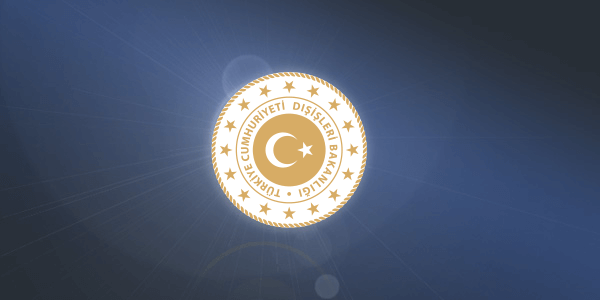- No: 198, 28 Eylül 2024, ABD’nin GKRY’ye Yönelik Silah Ambargosunu Kaldırma Kararının Yeniden Uzatılması Hk. Türkiye Cumhuriyeti Dışişleri Bakanlığı 28.09.2024
- No: 197, 24 Eylül 2024, İsrail Başbakanlık Ofisinin bir Sosyal Medya Platformunda Yaptığı Paylaşım Hk. Türkiye Cumhuriyeti Dışişleri Bakanlığı 24.09.2024
- No: 194, 18 Eylül 2024, Amman’da Düzenlenen İslam İşbirliği Teşkilatı ve Arap Ligi Gazze Temas Grubu Toplantısı Hk. Türkiye Cumhuriyeti Dışişleri Bakanlığı 18.09.2024
- No: 193, 17 Eylül 2024, İsveç ile Gerçekleştirilecek Güvenlik Mekanizması Toplantısı Hk. Türkiye Cumhuriyeti Dışişleri Bakanlığı 17.09.2024

Pazartesi - Cuma
09:00 - 13:00 / 14:00 - 17:00
Konsolosluk Şubesine Başvuru Kabul: 09:00-13:00
Tatil Günleri 2024
| 25.12.2023 | 25.12.2023 | Noel günü |
| 26.12.2023 | 26.12.2023 | Noelin ertesi günü |
| 1.01.2024 | 1.01.2024 | Yeni Yıl |
| 19.02.2024 | 19.02.2024 | Aile Günü |
| 29.03.2024 | 29.03.2024 | Kutsal Cuma |
| 1.04.2024 | 1.04.2024 | Paskalya Tatili |
| 10.04.2024 | 10.04.2024 | Ramazan Bayramı |
| 20.05.2024 | 20.05.2024 | Kraliçe Victoria günü |
| 16.06.2024 | 16.06.2024 | Kurban Bayramı |
| 1.07.2024 | 1.07.2024 | Kanada Günü |
| 5.08.2024 | 5.08.2024 | Yurtdaşlık Bayramı |
| 2.09.2024 | 2.09.2024 | İşçi Bayramı |
| 30.09.2024 | 30.09.2024 | Ulusal Hakikat ve Uzlaşma Günü |
| 14.10.2024 | 14.10.2024 | Şükran Günü |
| 29.10.2024 | 29.10.2024 | Cumhuriyet Bayramı |
| 11.11.2024 | 11.11.2024 | Şehitleri Anma Günü |
| 25.12.2024 | 25.12.2024 | Noel günü |
| 26.12.2024 | 26.12.2024 | Noelin ertesi günü |
+ 90 312 292 29 29




 TÜRKİYE'DE YATIRIM İMKANLARI
TÜRKİYE'DE YATIRIM İMKANLARI